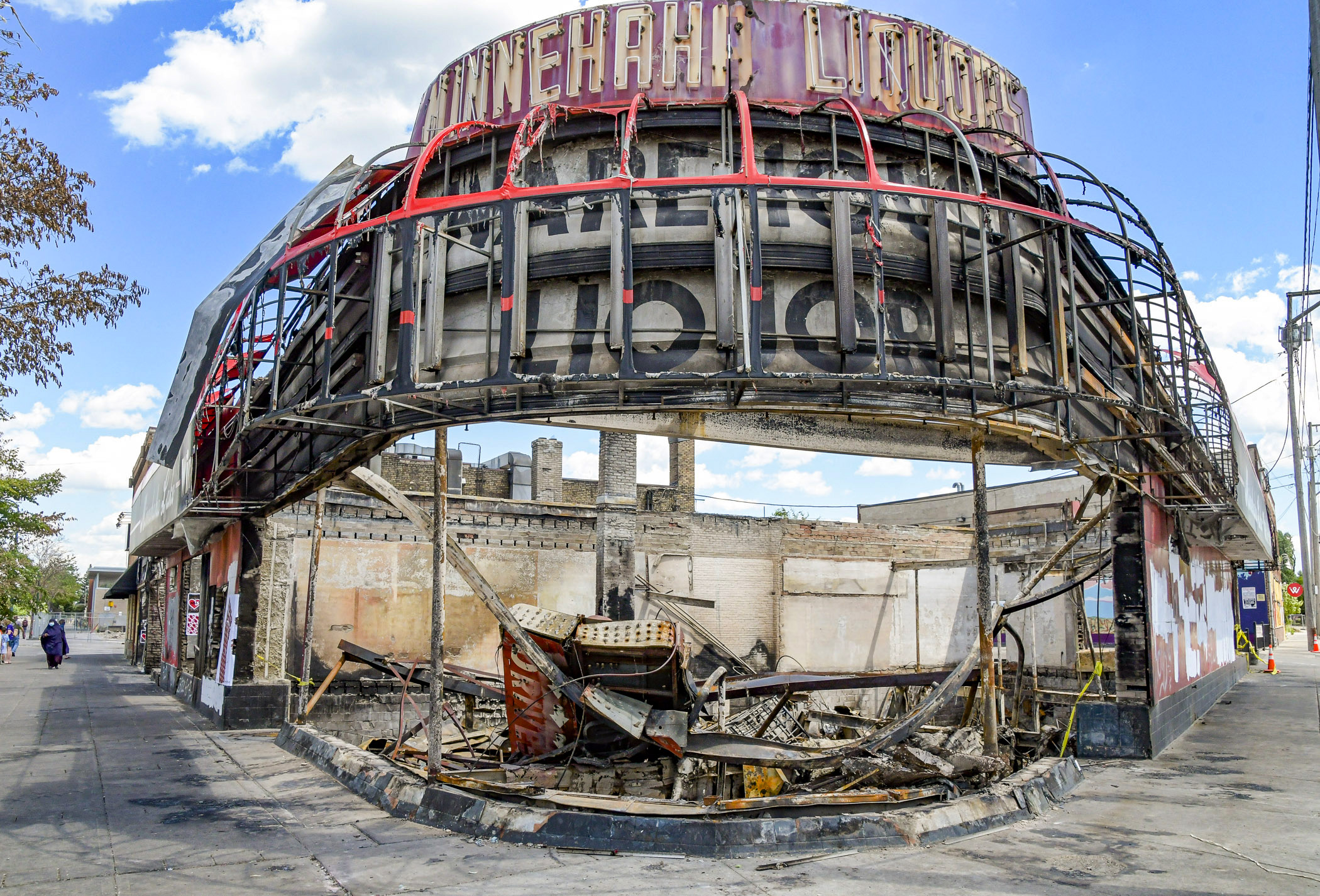Nearly $168 million bill could help Twin Cities businesses impacted by civil unrest rebuild

State funding for community-directed grants and loans could help preserve Twin Cities businesses affected by civil unrest following the death of George Floyd.
Those communities “took the brunt of our failures as a state,” said Rep. Jim Davnie (DFL-Mpls). “We must also work together to rebuild.”
He sponsors SSHF6, which, as amended, would appropriate $167.57 million from the General Fund to establish and fund a “civil unrest immediate relief program,” focused on preserving existing businesses and encouraging economic growth.
The House Jobs and Economic Development Finance Division approved the bill 11-7 late Tuesday and sent it to the House Ways and Means Committee.
“This bill is an excellent start,” said Alfredo Martel, president and CEO of the Metropolitan Economic Development Association. “The difficult situation that was brought forth by the COVID-19 pandemic was seriously compounded by the recent events of protests and unrest.”
Most of the impacted businesses already went through their cash reserves trying to stay afloat during the pandemic, and many were uninsured or underinsured at the time of the damages, meaning that few will receive insurance payouts that actually cover the cost of rebuilding.
And that’s before factoring the loss of inventory, equipment, and revenue, Martel said.
The cities of Minneapolis and St. Paul would each receive $17.5 million grants, $5 million of which would need to be used for the acquisition and holding of property “to prevent displacement, retain existing businesses, and maintain the character of the community."
The remaining funds would be used to help community organizations — including nonprofits, community development organizations, and traditional financial institutions — develop and fund their own local relief programs.
This would allow relief efforts to be tailored to the specific needs of each community, maintain as much flexibility as possible, and allow for innovation.
Grants would be capped at $250,000 per entity and require a determination that loans would not be appropriate to meet that entity’s needs.
Loans would be capped at $500,000 per entity and require plans for the recipients’ continued operation. The loans could be with or without interest, deferred for up to three years, or forgivable. All loan repayments would go to the General Fund.
Up to 4% of the appropriation could be used to cover administrative costs accrued by both the department and participating community organizations.
Helping to rebuild is an “issue of racial equity,” Davnie said.
The immigrant business owners impacted by the devastation on Lake Street and in the St. Paul Midway “are the true embodiment of resilience in every sense of the word,” said Hodan Guled, CEO of Briva Health, one of the damaged businesses on Lake Street. “They need to know you see them, you feel their pain, and that their hard work and contribution to the state is not in vain”
Rep. Jon Koznick (R-Lakeville) unsuccessfully offered an amendment that would have increased the appropriation to $300 million, but taken from the funding generated by Hennepin and Ramsey counties’ transportation sales and use tax, instead of the General Fund.
He said his would be more fiscally responsible.
Davnie and other DFLers objected, saying that such a move would only undermine attempts to help the impacted areas by taking away funds needed for public transportation.
Related Articles
Search Session Daily
Advanced Search OptionsPriority Dailies
Ways and Means Committee OKs proposed $512 million supplemental budget on party-line vote
By Mike Cook Meeting more needs or fiscal irresponsibility is one way to sum up the differences among the two parties on a supplemental spending package a year after a $72 billion state budg...
Meeting more needs or fiscal irresponsibility is one way to sum up the differences among the two parties on a supplemental spending package a year after a $72 billion state budg...
Minnesota’s projected budget surplus balloons to $3.7 billion, but fiscal pressure still looms
By Rob Hubbard Just as Minnesota has experienced a warmer winter than usual, so has the state’s budget outlook warmed over the past few months.
On Thursday, Minnesota Management and Budget...
Just as Minnesota has experienced a warmer winter than usual, so has the state’s budget outlook warmed over the past few months.
On Thursday, Minnesota Management and Budget...